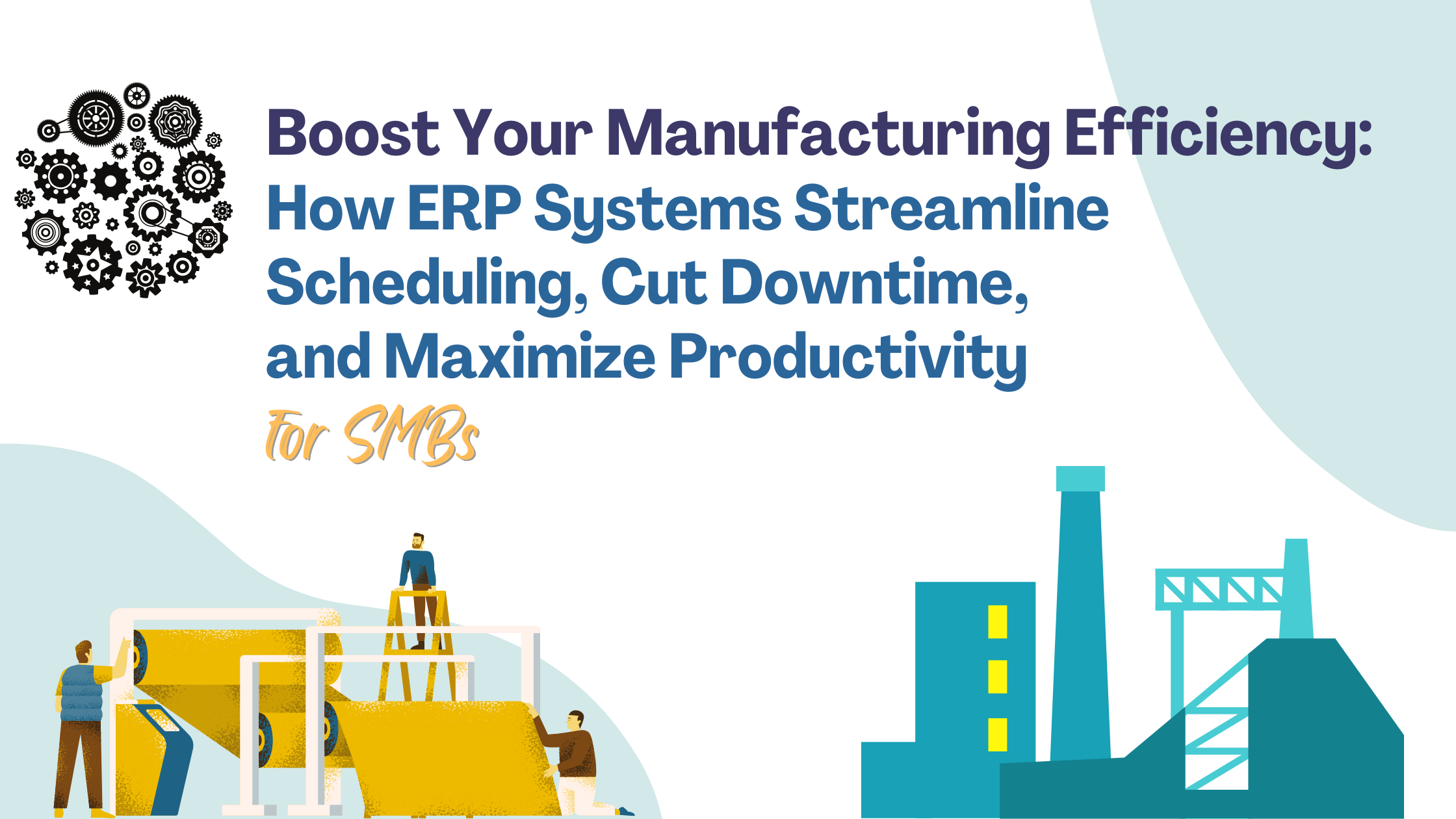Boost Your Manufacturing Efficiency: How ERP Systems Enhance Scheduling, Minimize Downtime, and Maximize Productivity for SMBs
Manufacturing small and medium-sized businesses (SMBs) face numerous challenges, such as inefficient scheduling, unexpected downtime, and inventory issues, which can severely impact productivity. Implementing an Enterprise Resource Planning (ERP) system helps streamline operations, enhance efficiency, and maintain a competitive edge. ERP systems optimize production scheduling, reduce downtime, and improve overall manufacturing efficiency, giving SMBs the tools to succeed.

Key Challenges in Manufacturing for Indian SMBs
Personalization is at the heart of modern marketing and sales. Customers now expect brands to offer relevant and customized experiences. For Indian SMBs, which often face intense competition and operate in price-sensitive markets, personalized marketing can provide a distinct edge.
- 1. Inefficient Production Scheduling: Poor scheduling leads to delays, bottlenecks, and resource underutilization.
- 2. Unplanned Downtime: Machine breakdowns and maintenance issues disrupt production and increase costs.
- 3. Inventory Management Problems: Overstocking, stockouts, and waste affect production flow and profitability.
- 4. Lack of Real-Time Data: Outdated information results in poor planning and resource misallocation.
- 5. Inconsistent Quality Control: Uncoordinated processes make maintaining quality standards challenging.
How ERP Systems Address These Challenges
1. Optimizing Production Scheduling
ERP systems use real-time data and automation to streamline production scheduling, enhancing resource utilization:
- Automated Scheduling: ERP automates scheduling, considering machine capacity, order deadlines, and available resources.
- Real-Time Adjustments: Allows on-the-fly changes to schedules based on current conditions, minimizing disruptions.
- Capacity Planning: Analyzes data to ensure optimal use of labor and machinery without overloading resources.
- Job Prioritization: Prioritizes tasks based on deadlines and resource availability to meet key order timelines.
2. Reducing Downtime
ERP systems support proactive maintenance and monitoring to minimize unplanned downtime:
- Preventive Maintenance: Schedules maintenance based on machine usage, reducing breakdowns and extending equipment life.
- Real-Time Monitoring: Integrates with IoT devices to track machine performance, alerting maintenance teams before issues escalate.
- Downtime Analysis: Tracks downtime causes, offering insights to prevent future disruptions.
- Spare Parts Management: Ensures necessary parts are available when needed, speeding up repairs.
3. Enhancing Manufacturing Efficiency
ERP systems integrate workflows, planning, and quality control, leading to smoother operations:
- Standardized Workflows: Streamlines processes, reducing variability and improving consistency.
- Integrated Quality Control: Embeds quality checks within production, reducing defects and rework.
- Accurate Demand Forecasting: Uses data to predict demand, adjusting production to avoid overproduction or shortages.
- Optimized Inventory Management: Syncs inventory with production needs, ensuring material availability without excess stock.
ERP systems are essential for Indian manufacturing SMBs to streamline production, cut downtime, and enhance efficiency. By adopting an ERP, manufacturers can transform their operations, reduce costs, and maintain a strong competitive position in the market. ERP is more than just a tool—it’s a strategic partner in driving manufacturing success.
